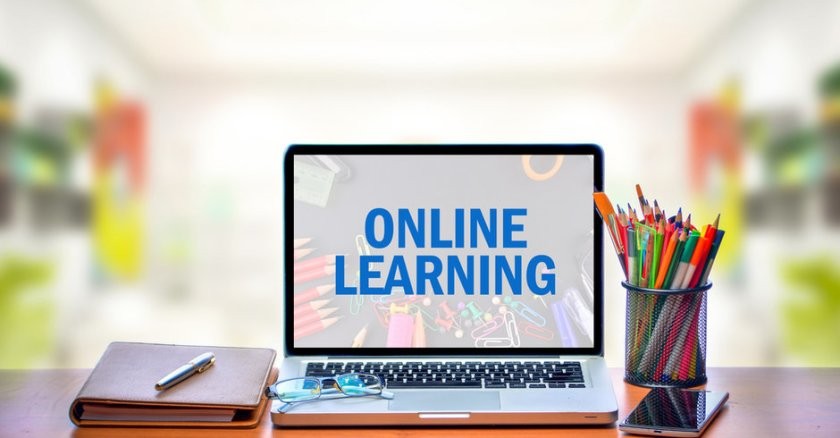Online education in the USA has grown significantly in recent years, offering flexible and accessible learning opportunities for individuals of all ages and backgrounds. Here’s an overview of online education in the USA:
Accredited Institutions: Many accredited universities and colleges in the USA offer online degree programs at the undergraduate and graduate levels. These programs often mirror their on-campus counterparts in terms of curriculum, faculty expertise, and academic rigor.
Variety of Programs: Online education covers a wide range of disciplines and fields of study, including business, healthcare, education, technology, humanities, and more. Students can pursue certificates, associate degrees, bachelor’s degrees, master’s degrees, and even doctoral degrees online.
Flexible Learning Formats: Online courses typically offer flexible learning formats, allowing students to access course materials, lectures, assignments, and discussions at their own pace and on their own schedule. This flexibility is particularly beneficial for working professionals, adult learners, and those with other commitments.

Interactive Learning Tools: Online learning platforms often incorporate interactive tools and technologies to enhance the learning experience. These may include video lectures, multimedia resources, discussion forums, virtual labs, simulations, and collaborative projects.
Dedicated Support Services:
Dedicated Support Services: Many online programs provide dedicated support services for students, including academic advising, tutoring, technical support, library resources, and career services. These services help students stay engaged, motivated, and successful throughout their academic journey.
Admission Requirements: Admission requirements for online programs vary by institution and program. Generally, applicants must meet the same standards as traditional students, including academic qualifications, standardized test scores (if required), letters of recommendation, and a statement of purpose.
Financial Aid Options: Online students may be eligible for various forms of financial aid to help cover tuition, fees, and other expenses. This may include scholarships, grants, loans, employer tuition assistance, military benefits, and federal financial aid programs such as grants and loans.
Quality Assurance:
Quality Assurance: Accredited online programs undergo rigorous quality assurance processes to ensure that they meet established standards of excellence in education. Accrediting agencies evaluate factors such as curriculum, faculty qualifications, student support services, and learning outcomes.
Networking Opportunities:
Networking Opportunities: Online students have opportunities to connect with classmates, faculty, and alumni through virtual discussions, group projects, and networking events. These connections can foster collaboration, peer support, and professional networking opportunities.
Life-long Learning: Online education enables individuals to pursue continuous learning and skill development throughout their lives. Whether seeking to advance in their current career, switch careers, or pursue personal interests, online education offers flexible options for life-long learning.
Overall, online education in the USA continues to evolve and expand, providing accessible and high-quality learning opportunities for students seeking flexibility, convenience, and affordability in their educational pursuits.
Specialized Platforms and Providers: In addition to traditional universities offering online programs, there are specialized online education platforms and providers that offer a wide range of courses and programs. Examples include Coursera, Udacity, Udemy, and edX, which offer Massive Open Online Courses (MOOCs) and professional certifications.
Microcredentials and Nanodegrees:
Microcredentials and Nanodegrees: Some online education platforms offer microcredentials, also known as badges or nanodegrees, which are short, focused courses that provide specific skills or competencies. These can be valuable for professionals seeking to enhance their expertise in a particular area without committing to a full degree program.
Self-Paced Learning: Many online courses and programs offer self-paced learning options, allowing students to progress through the material at their own speed. This flexibility is particularly beneficial for individuals with busy schedules or varying time commitments.
Global Accessibility:
Global Accessibility: Online education transcends geographical boundaries, allowing students from around the world to access high-quality educational resources and programs. This global accessibility promotes diversity, collaboration, and cross-cultural exchange in the online learning environment.
Continuing Education and Professional Development:
Continuing Education and Professional Development: Online education is often used for continuing education and professional development purposes. Professionals may pursue online courses and certifications to maintain licensure, stay current with industry trends, or acquire new skills relevant to their careers.
Hybrid and Blended Learning: Some institutions offer hybrid or blended learning models, which combine online instruction with in-person components. This hybrid approach allows students to benefit from the flexibility of online learning while also engaging in face-to-face interactions and hands-on experiences.


